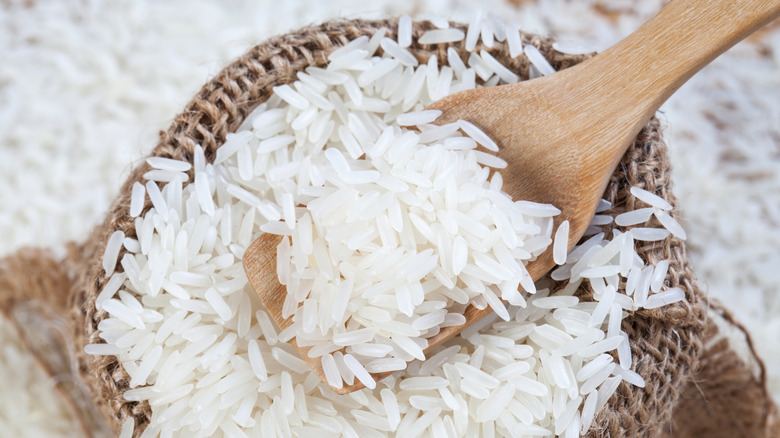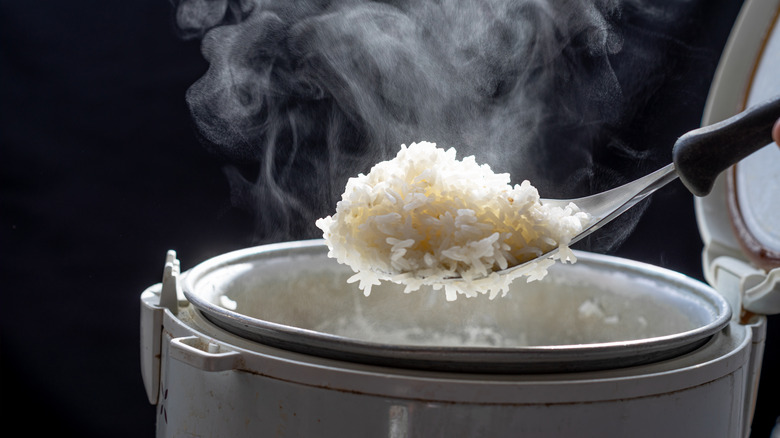The Prep Mistake You're Making With Jasmine And Basmati Rice
Aromatic rice, like jasmine or basmati, is often touted as superior to non-aromatic varieties in nearly every aspect. From the moment you open the bag and a lovely floral scent wafts up, you'll know the reason why. Thanks to the long, slender grains of these rice strains, they're much less likely to clump together, ensuring fluffy rice with minimal effort. And once you've savored the unique nuttiness of basmati and jasmine rice, regular non-aromatic rice will pale in comparison.
Since a bag of aromatic rice tends to be set at a higher price than the regular kind, make sure that you treat it right by prepping it correctly before you put the rice on the stovetop to steam. After rinsing to remove any debris, soaking the rice in clean tap water for 30 minutes before cooking is crucial. Skipping this step may result in overly mushy rice, lacking the promised qualities found on the packaging. So, take the time to soak it — it's the secret to a perfect bowl of jasmine rice!
Where aromatic rice gets its scent from
So, what is it that makes jasmine and basmati rice taste so superior? Its full name is 2-Acetyl-1-pyrroline. It's quite a mouthful, so it won't mind if you call it by its nickname, 2-AP. Per the Rice Science Journal, this chemical compound is responsible for the floral scent and nutty flavor that you get when you eat aromatic rice, so ultimately, it's what sets this variety apart from the non-aromatic ones.
2-AP is sensitive to prolonged exposure to high temperatures, which means if you want to preserve its fragrance and flavor, it's best to soak your rice before cooking. Soaking not only adds moisture to the grains and cuts down cooking time, but it also ensures that the rice isn't exposed to heat for too long, preserving more of that sweet-smelling 2-AP.
But soaking does more than just preserve 2-AP. It also softens the rice grains by allowing them to absorb water, resulting in more evenly cooked rice throughout. This ensures that every grain is fluffy and flavorful when you finally serve it.
Is soaking jasmine rice absolutely necessary?
It's very common advice online that you shouldn't soak jasmine rice because it's already soft enough, and any more soaking would make it soggy. This is an entirely valid concern. Compared to most other kinds of rice like basmati, jasmine rice is softer and stickier, making it prone to clumping if soaked. If that's a deal-breaker for you, you can skip soaking and simply rinse the rice before cooking, which often results in fluffier grains.
However, in Southeast Asian countries like Thailand and Vietnam, where jasmine rice is a staple, soaking is still a widespread practice despite these risks. The deeper fragrance and stronger flavor are seen as worthwhile trade-offs, even if it means sacrificing some of the rice's texture. In the end, both methods have their merits, and it's up to you to decide which one is more important for your dish — either a stronger scent and flavor, or a firmer mouthfeel.


